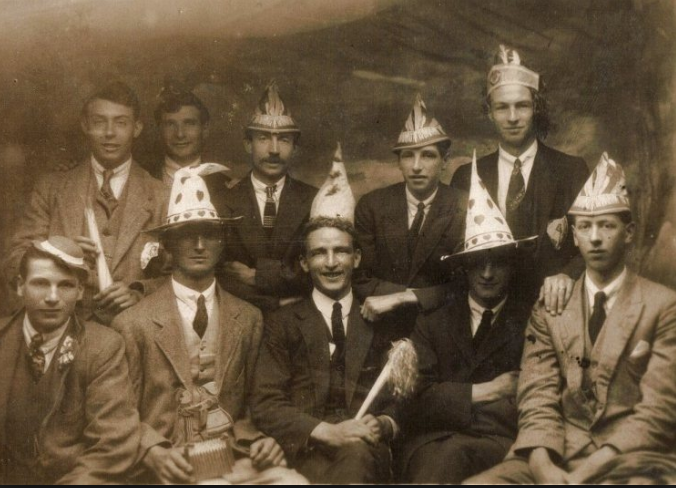golfdelta21
Member
- Joined
- Sep 22, 2013
- Messages
- 5,959
- Reaction score
- 829
- Points
- 113
Hrrrmmm...I'm afraid this is a hopelessly US-centric model of history. In many European countries the breake-through of TV came in late 50s (not in the late 40s-early 50s as in the US) or early 60s - my own country (Sweden) is an example: the TV breake-through was directly connected to something as un-american as the Football World Championship 1958 in Stockholm, Sweden. That's the specific event that got ordinary people to go and buy this new piece of furniture called a TV set and to sign up for a TV license.
And licenses takes us to the other basic point: The basic model for broadcasting in Sweden and many other countries in western Europe didn't follow the US model of commercial advertisement financed broadcasting, but the model launched by British BBC - a public service state monopoly would become the basic model for many, many years.
I totally agree with what you say.
TV sets advertising in the United States was also much more compelling and visually appealing than the European one.

The fall of the column in Place Vendôme on May 16, 1871 during the Commune de Paris.
Commune of Paris, also called Paris Commune, French Commune de Paris, (1871), insurrection of Paris against the French government from March 18 to May 28, 1871. It occurred in the wake of France’s defeat in the Franco-German War and the collapse of Napoleon III’s Second Empire (1852–70).
I hope you don't think I'm a hopeless nitpicker, but there was no "Franco-German War" in 1870-71. There was a Franco-PRUSSIAN War in 1870-71 & the formal unification of Germany to become a modern nation state was one of the more important outcomes of it. Before 1871 "Germany" was just a language, a hodge-podge of German speaking kingdoms, principalities and duchies and vague dreams of unification.
We're both right
It is true. The war broke out on 19 July 1870 between the Kingdom of Prussia and the second French Empire. After the defeat at Sedan and the abdication of Napoleon II in September 1870,the war continue and ended on 10 may 1871, with the signing of the peace treaty between the French 3rd Republic and the German Empire, who was proclaimed in Versailles on 18 January 1871. This war in German is called "Deutsch-Französischer Krieg", in French La guerre Franco-Allemande or la guerre Franco-Prussienne.
In conclusion both definitions are correct.
Anyway thanks for the clarification I'm glad that there is someone who does not just look at the photos but also reads the captions carefully.
Many, many thanks
We're both right
It is true. The war broke out on 19 July 1870 between the Kingdom of Prussia and the second French Empire. After the defeat at Sedan and the abdication of Napoleon II in September 1870,the war continue and ended on 10 may 1871, with the signing of the peace treaty between the French 3rd Republic and the German Empire, who was proclaimed in Versailles on 18 January 1871. This war in German is called "Deutsch-Französischer Krieg", in French La guerre Franco-Allemande or la guerre Franco-Prussienne.
In conclusion both definitions are correct.
Anyway thanks for the clarification I'm glad that there is someone who does not just look at the photos but also reads the captions carefully.
Many, many thanks
You've obviously done a more thorough homework than myself about the Franco-Prussian war!
The main reason why I'll continue using this name is that - in my opinion - the term "Franco-German War" has the tendency to eradicate much of what the history of central Europe in the 19th century was all about.
And many, many thanks to yourself - you post loads of very interesting material!!!

Hi Gorgik, I integrated the caption by adding the term Franco-Prussian War. The definition is the most widespread. The term Franco-German I had found on the online edition of the Encyclopaedia Britannica and I did not think to change the term. My fault, sorry!
P.S. I wanted to upload some photos of the Franco-Prussian war of 1870-71, but I found very few images, the usual 4 photographs.
You are a real fan of old photos, you would not know how to find some and upload it on GH? Thanks in advance G.D.
Hi Gorgik, I integrated the caption by adding the term Franco-Prussian War. The definition is the most widespread. The term Franco-German I had found on the online edition of the Encyclopaedia Britannica and I did not think to change the term. My fault, sorry!
P.S. I wanted to upload some photos of the Franco-Prussian war of 1870-71, but I found very few images, the usual 4 photographs.
You are a real fan of old photos, you would not know how to find some and upload it on GH? Thanks in advance G.D.
Same as when they talk of Italy before the unification. See this glaring anachronism in the famous quote from The Third Man of Orson Welles:
Harry Lime: Don't be so gloomy. After all it's not that awful. Like the fella says, in Italy for 30 years under the Borgias they had warfare, terror, murder, and bloodshed, but they produced Michelangelo, Leonardo da Vinci, and the Renaissance. In Switzerland they had brotherly love - they had 500 years of democracy and peace, and what did that produce? The cuckoo clock. So long Holly.



I'm sorry, but unfortunately the cuckoo clock was not invented in Switzerland. The most accredited sources believe it was invented in southern Germany in the Black Forest region in the late 17th century..
Switzerland has only introduced a particular type of watch called 'Chalet' style at the end of the 19th century.



